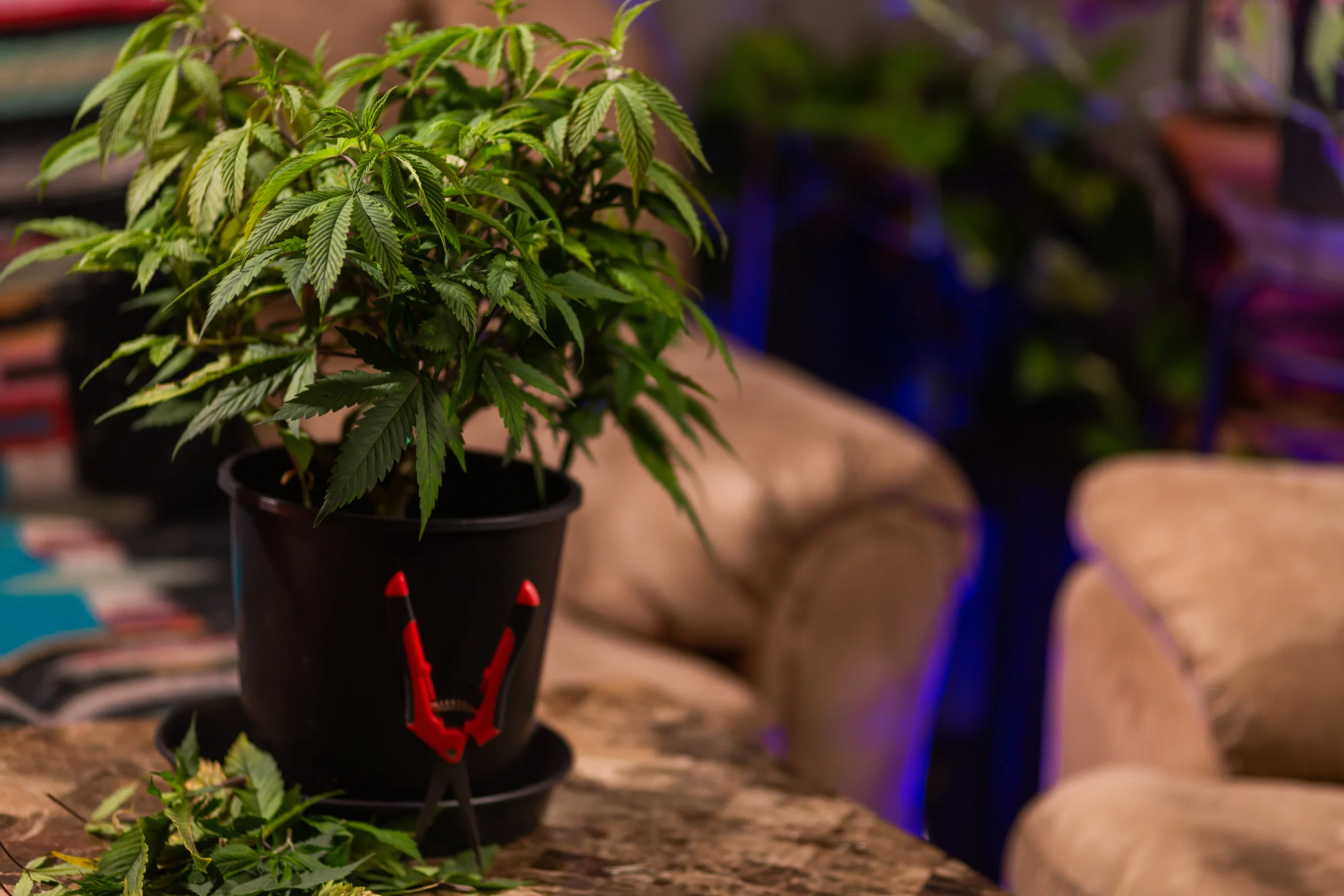- 4 Oct 2025

The cannabis industry has witnessed rapid innovation in recent years, particularly in the realm of synthetic cannabinoids. Among the latest and most controversial is THC-O (short for THC-O acetate), a compound touted for its potency and psychedelic-like effects. As its popularity rises, so do questions about its safety, production, and most importantly—its legality. In this article, we’ll break down what THC-O is, why it’s gaining attention, and where the law currently stands on this synthetic cannabinoid.
THC-O, or THC-O acetate, is a synthetic derivative of THC (tetrahydrocannabinol), the primary psychoactive component in cannabis. Unlike naturally occurring cannabinoids like Delta-9 THC or CBD, THC-O doesn’t occur naturally in the plant and must be created in a lab.
Often referred to as the “psychedelic cannabinoid,” THC-O is claimed to be 2 to 3 times more potent than Delta-9 THC. Users often report more intense mental and physical effects, including altered perception and even hallucinations.
THC-O is produced through a chemical process that starts with extracting Delta-8 THC from hemp. The Delta-8 is then chemically altered by adding acetic anhydride, a highly flammable and potentially dangerous chemical, to produce THC-O acetate.
This process is highly technical and should only be conducted in a professional laboratory setting due to the risks involved. It’s also important to note that because THC-O is synthesized, it does not qualify as a natural cannabinoid—making its legal status much more complicated.
Here’s how THC-O stacks up against other popular cannabinoids:
| Cannabinoid | Source | Psychoactivity | Legality (U.S.) |
|---|---|---|---|
| Delta-9 THC | Marijuana | High | Federally illegal |
| Delta-8 THC | Hemp-derived | Mild-Moderate | Legal in some states |
| CBD | Hemp-derived | None | Federally legal |
| THC-O | Synthetic | Very High | Legally ambiguous |
THC-O is significantly more potent than both Delta-8 and Delta-9. However, its synthetic nature and the chemicals used in its production raise red flags among scientists, regulators, and healthcare professionals.
The legality of THC-O is murky at best. Initially, some producers assumed that since THC-O is made from federally legal hemp, it must also be legal. However, that interpretation doesn’t hold up to recent regulatory updates.
In 2023, the U.S. Drug Enforcement Administration (DEA) clarified that THC-O does not fall under the protection of the 2018 Farm Bill, which legalized hemp-derived products with less than 0.3% Delta-9 THC.
“THC-O is not a naturally occurring cannabinoid and is therefore considered a Schedule I controlled substance under the Controlled Substances Act,” the DEA stated in a response letter.
As of now, THC-O is considered illegal at the federal level, regardless of whether it was derived from hemp or not. Some states have also enacted their own bans or restrictions on THC-O and similar compounds.
The DEA’s classification of THC-O as a Schedule I drug puts it in the same category as heroin, LSD, and marijuana (under federal law). This classification is based on three factors:
High potential for abuse
No currently accepted medical use in treatment
Lack of accepted safety for use under medical supervision
In short, THC-O is now subject to the same legal penalties as other Schedule I drugs, including manufacturing, possession, and distribution violations.
Aside from legal concerns, there are also serious health risks associated with THC-O. Because it’s synthetic and produced with acetic anhydride, impurities or improper formulation can lead to toxic byproducts.
Moreover, the effects of THC-O are not well-researched. Unlike natural cannabinoids, THC-O hasn’t undergone rigorous clinical testing, which means users may be exposed to unknown short- and long-term health risks. Reported side effects include:
Extreme sedation
Hallucinations
Anxiety and paranoia
Respiratory issues when vaped
Given the lack of oversight in production, there’s also no way to ensure dosage accuracy or purity in products containing THC-O.
With the DEA’s ruling, THC-O is likely to become increasingly restricted in the coming years. States that had not yet addressed synthetic cannabinoids may start to crack down, especially as public awareness and regulatory scrutiny grow.
However, the cannabis industry is notorious for evolving rapidly, and new synthetic or semi-synthetic cannabinoids are likely to continue emerging. For now, THC-O remains an example of how legal loopholes can be exploited—but not indefinitely.
Researchers, lawmakers, and consumers will all play a role in shaping the future of cannabis-related substances. Until then, caution is advised for anyone considering the use of THC-O.
THC-O may be one of the most potent cannabinoids available today, but its synthetic nature and unclear legal status make it a risky choice for consumers. With federal agencies like the DEA labeling it a controlled substance, and state laws rapidly evolving, THC-O’s future looks uncertain.
Before trying any cannabinoid product, especially synthetic ones, it’s essential to stay informed about current laws, health risks, and reliable sources. Always check your state’s specific cannabis laws and consult a medical professional if you’re unsure about a product’s safety or legality.
Key Takeaways:
THC-O is a synthetic cannabinoid said to be more potent than Delta-9 THC.
It is created through a chemical process involving hazardous substances.
The DEA considers THC-O a Schedule I controlled substance, making it federally illegal.
Health risks are significant due to limited research and unregulated production.
The future of THC-O remains uncertain as federal and state authorities increase scrutiny.